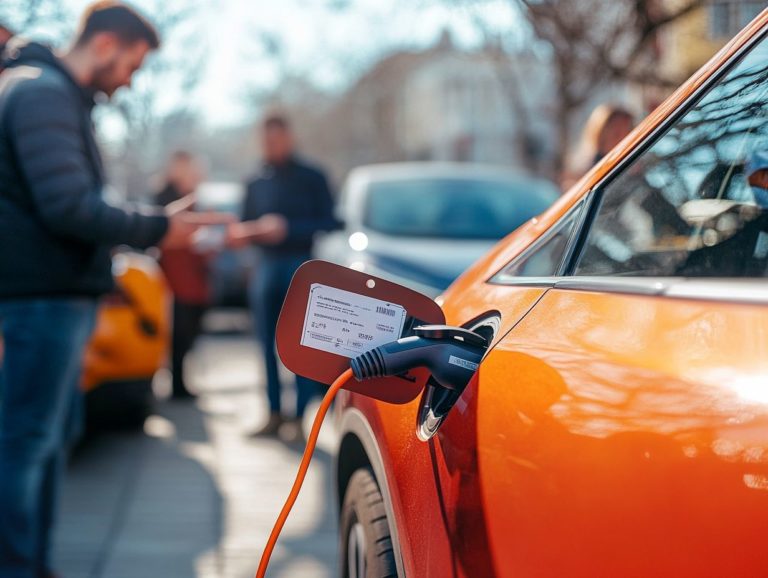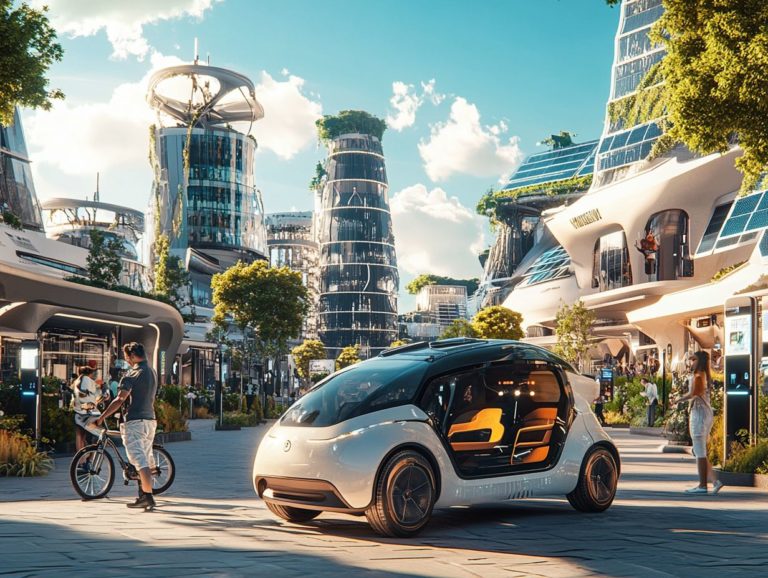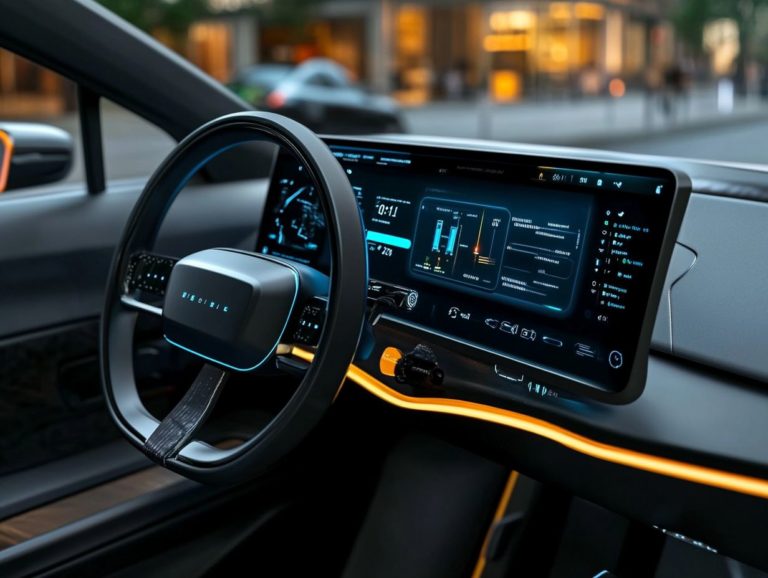what is the importance of ev range estimates?
As electric vehicles (EVs) continue to gain traction, understanding range estimates becomes essential for you, whether you’re a potential buyer or a current owner.
Range anxiety the worry about depleting your battery poses a notable challenge to embracing EVs.
This article delves into the various factors that influence EV range, from battery capacity to your driving habits, and explains how these estimates are derived.
You’ll also discover how range estimates impact your consumer choices and the development of infrastructure, as well as the advancements on the horizon designed to enhance their accuracy.
Explore with us the profound significance of EV range estimates in shaping the future of sustainable transportation.
Contents
- Key Takeaways:
- The Significance of EV Range Estimates
- Factors Affecting EV Range
- How EV Range Estimates are Calculated
- The Role of Range Estimates in EV Adoption
- Improving and Enhancing EV Range Estimates
- Frequently Asked Questions
- What is the importance of EV range estimates?
- How accurate are EV range estimates?
- Can I trust the EV range estimate on my vehicle?
- Why do EV range estimates change while driving?
- Can I Improve the Accuracy of Electric Vehicle (EV) Range Estimates?
- What Happens if I Run Out of Charge Before Reaching My Destination?
Key Takeaways:
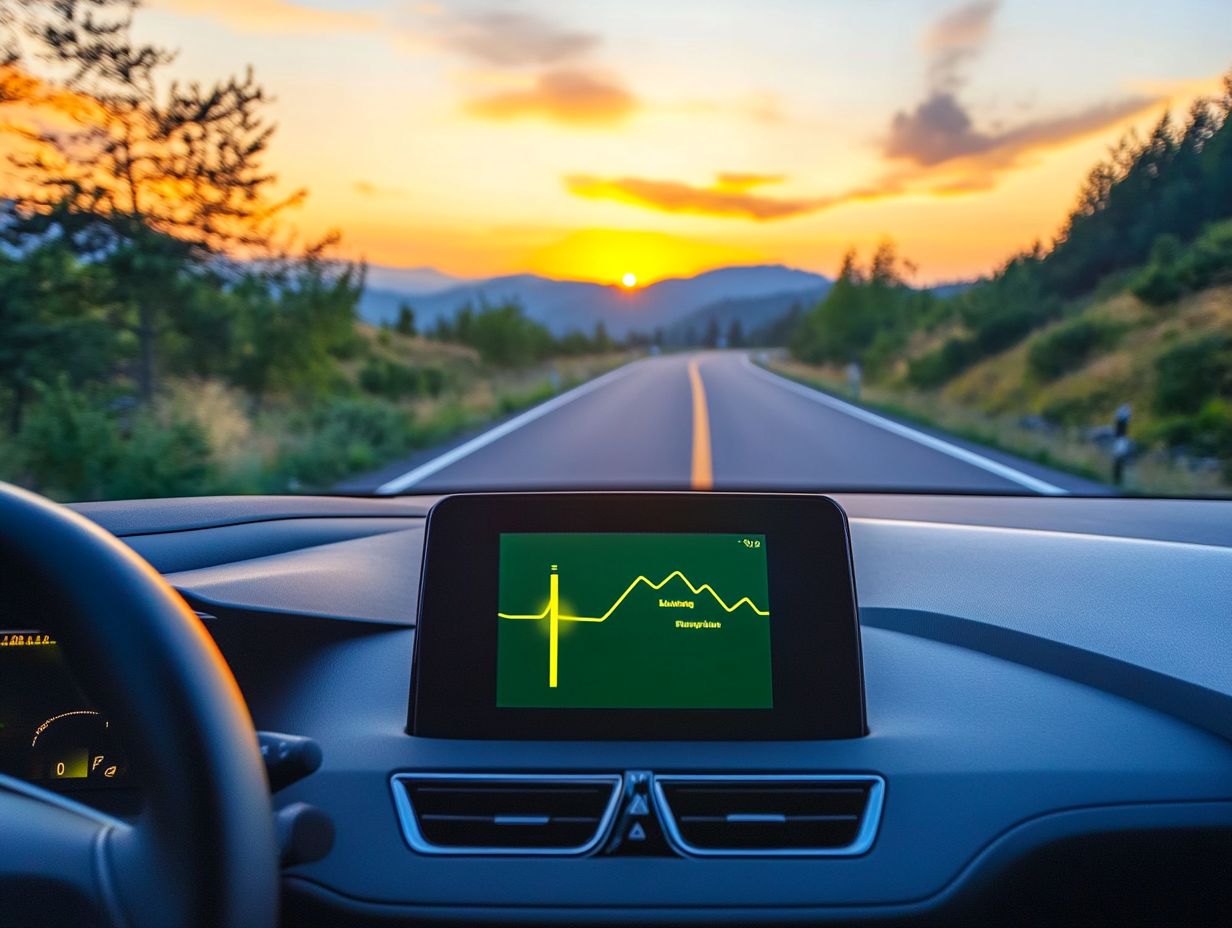
- Range estimates are crucial in addressing range anxiety, a common concern among potential EV owners.
- Battery capacity and efficiency, as well as driving habits and conditions, greatly affect EV range and should be considered in estimating range.
- Accurate range estimates are crucial for the adoption of EVs by influencing consumer decisions and aiding in the development of necessary infrastructure.
The Significance of EV Range Estimates
Grasping the importance of EV range estimates is essential for you, whether you’re a consumer or an automotive manufacturer. These estimates play a pivotal role in the adoption of electric vehicles (EVs) and in shaping consumer trust.
As range anxiety grows, it s essential to develop accurate estimates that bring peace of mind. This helps potential buyers feel confident and empowered to make informed decisions.
Understanding Range Anxiety
Range anxiety is that nagging fear of running out of battery charge in electric vehicles. It s a significant concern that shapes your trust in and willingness to adopt EVs.
This isn t just a personal worry; it affects your driving choices, often steering you toward traditional gasoline vehicles instead. Studies reveal that around 60% of current and prospective EV owners share some level of range anxiety.
This apprehension can undermine the operational efficiency of electric vehicles, as it may prompt you to avoid longer journeys or take detours just to locate charging stations.
Considering these concerns, manufacturers are stepping up their game by enhancing battery technology and expanding charging infrastructure. Their goal is to soothe your fears and facilitate a smoother transition to the world of electric mobility.
Factors Affecting EV Range
Several key factors influence the range of electric vehicles (EVs), such as battery efficiency, energy consumption, weather conditions, and road conditions. Each of these elements plays a vital role in determining just how far your EV can travel before it requires a recharge.
Battery Capacity and Efficiency
The capacity and efficiency of your battery are central to the performance of your electric vehicle, influencing both energy consumption and the range you can achieve across varied driving conditions.
An advanced battery management system helps manage how the battery charges and discharges, ensuring it works efficiently. This system optimizes charge cycles and maintains ideal operating temperatures, which directly contributes to extending battery life and enhancing overall performance.
Innovations in this realm are aimed at reducing energy losses during charging, enabling you to fully maximize the potential of each charge. By minimizing these losses, you not only enhance your effective range but also realize significant energy savings.
This harmony between improved battery capacity and efficient management systems is vital for the future of sustainable transportation, positioning you at the forefront of eco-friendly driving.
Ready to embrace the future of transportation? Discover how EV range estimates can enhance your driving experience today!
Driving Habits and Conditions
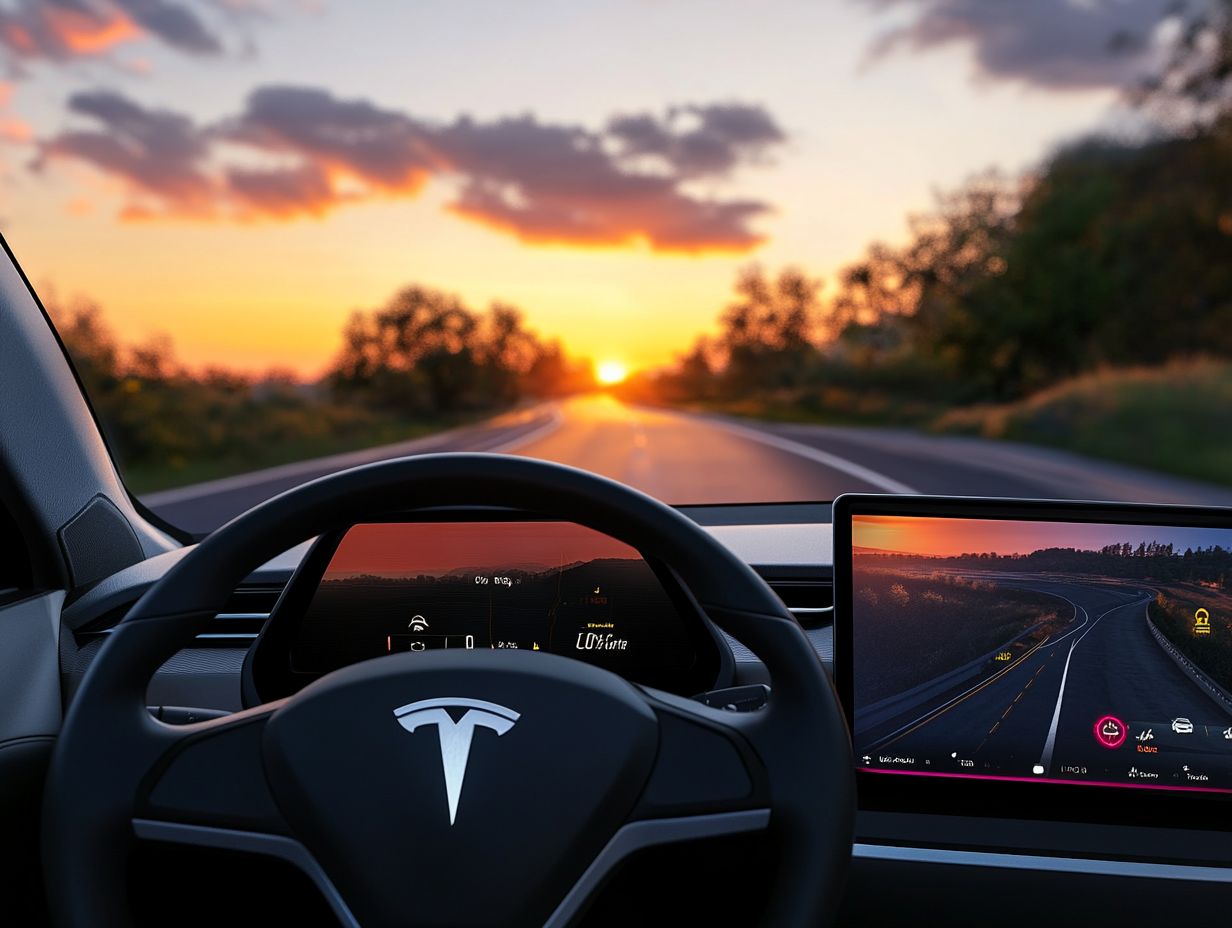
Driving habits and external conditions play a crucial role in shaping the range and efficiency of your electric vehicle. Factors like vehicle handling and road conditions can create notable variations in energy consumption.
Take acceleration, for example. The way you choose to speed up whether it s quick bursts or a more gradual climb directly impacts how much energy you use.
On smooth asphalt, maintaining a steady acceleration can help you conserve battery life. However, if you’re navigating slippery surfaces where traction is limited, your vehicle may need to draw more power to stay stable, which increases energy consumption.
Tackling hilly terrains or dealing with stop-and-go traffic can amplify the effects of aggressive driving styles, ultimately shortening your vehicle’s range.
To make the most of your electric vehicle s efficiency, adapting your driving habits can make a big difference in how far you go. Pay attention to the varying road conditions you encounter.
How EV Range Estimates are Calculated
Calculating EV range estimates requires a thoughtful blend of methods and assumptions. This includes key elements such as energy consumption models, vehicle handling, and real-time data.
This approach ensures you receive an accurate representation of what to expect under various driving conditions.
Methods and Assumptions
The methods and assumptions involved in calculating EV range estimates are vital for you. They need to accurately reflect your driving behavior and consider temperature effects that can influence battery performance and efficiency.
While standardized testing procedures offer a baseline for these calculations, it’s essential for you to incorporate real-world data that captures the variability of your actual driving conditions.
Your acceleration patterns, braking habits, and the frequency of your stops can differ significantly from those controlled tests.
It’s important to recognize that assumptions about driving behavior must factor in temperature variations. Extreme heat or cold can negatively impact battery output and overall vehicle efficiency.
Understanding how these temperature effects are integrated into range calculations is crucial, as it provides a more realistic expectation of what you might experience during different seasons. This knowledge can ultimately influence your decision-making process.
The Role of Range Estimates in EV Adoption
Range estimates are crucial in the adoption of electric vehicles. They significantly influence your decisions and shape your perceptions about the practicality of EVs, especially when considering factors like charging infrastructure and the environmental benefits these vehicles offer.
Impact on Consumer Decisions
Accurate range estimates profoundly influence your decisions when it comes to electric vehicles. They allow you to evaluate EV adoption through the lens of your lifestyle and charging strategies.
As you consider an electric vehicle, your daily commuting distance likely comes into play. This determines how far you can comfortably travel without the anxiety of running out of battery.
Your charging habits whether you recharge at home, at work, or at convenient charging stations along your routes are essential in assessing the practicality of an EV.
Fuel economy is another critical consideration. You weigh the significance of efficiency alongside range satisfaction to ensure the vehicle meets your overall expectations.
Together, these factors shape your perception and ultimately impact your decision to invest in an electric vehicle.
Reflecting on your driving habits and how you can improve your EV efficiency is an important step toward making informed choices.
Effect on EV Infrastructure Development
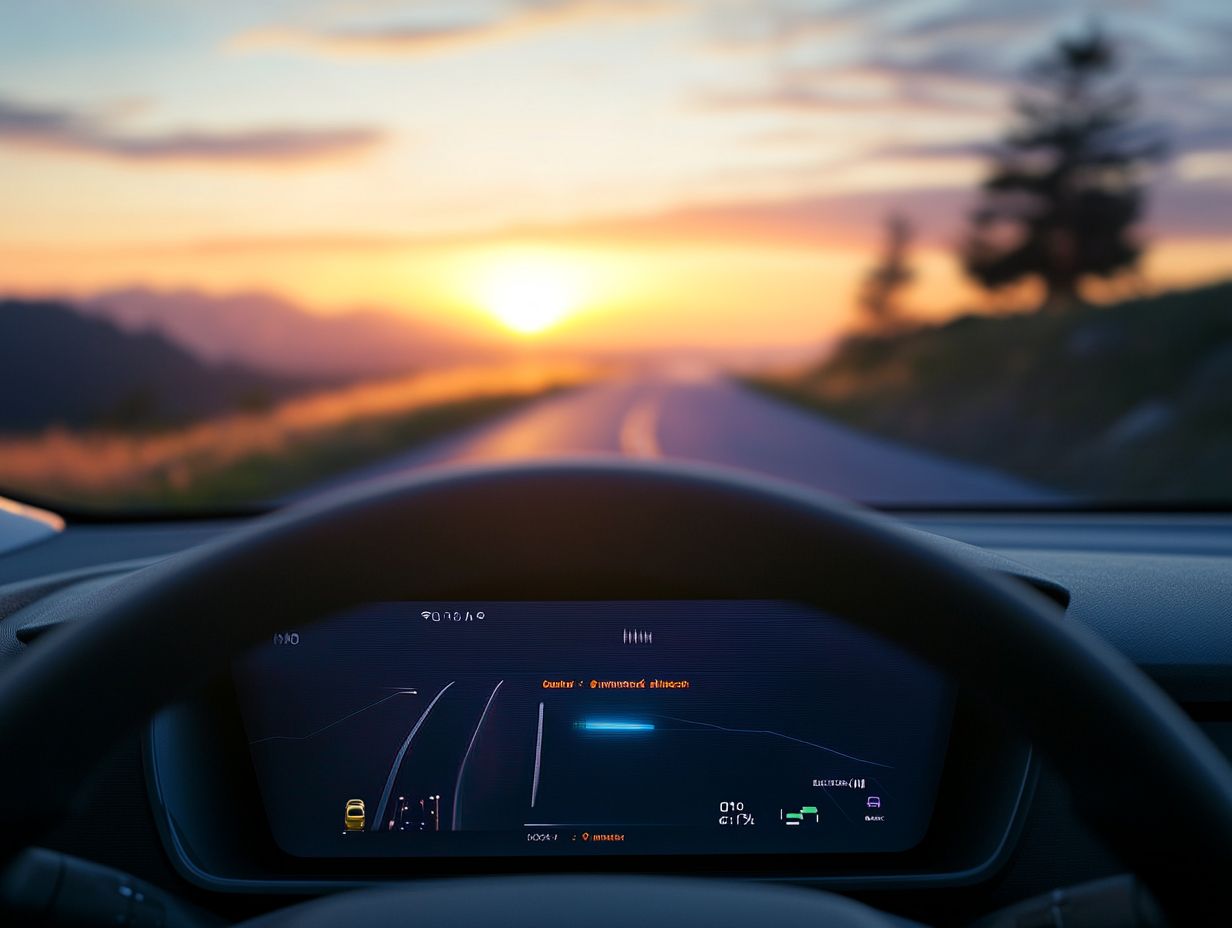
The development of EV infrastructure relies heavily on range estimates. Accurate data on vehicle range guides the planning and deployment of charging stations, ultimately enhancing energy security.
By strategically positioning charging stations according to these range metrics, you can ensure that vehicles have easy access to power sources, effectively reducing fear of running out of charge for potential users.
Understanding the typical driving patterns of EV owners allows decision-makers to implement focused charging strategies. This includes placing fast chargers in high-demand areas and level 2 chargers in residential zones.
This intelligent approach fosters broader adoption of electric vehicles and contributes to a more resilient energy framework essential as society transitions toward sustainable transportation solutions.
Improving and Enhancing EV Range Estimates
Enhancing and refining EV range estimates is an ongoing process that uses cutting-edge technology, maintenance strategies that fix issues before they become problems, and energy-efficient solutions.
This approach ensures that you receive the most precise information available, enabling you to make informed decisions about your electric vehicle experience.
Technological Advancements
Recent technological advancements have transformed the calculation of EV range estimates. Sophisticated battery management systems and predictive algorithms improve precision.
These innovations use machine learning techniques and data analytics, enabling your vehicle to analyze real-time driving conditions and personal habits.
By considering variables like terrain, weather, and your previous driving patterns, these advanced systems offer a more trustworthy assessment of your remaining range.
This not only strengthens your confidence in electric vehicles but also elevates your overall driving experience.
With growing confidence in your vehicle’s performance, you’re likely to venture on longer journeys, diminishing range anxiety and fostering wider acceptance of electric mobility solutions.
Future of EV Range Estimates
The future of EV range estimates looks exceptionally bright for you. Advancements in data-driven predictions and a deeper understanding of charging losses promise greater operational efficiency and reliability for electric vehicles.
In the coming years, you can anticipate a remarkable shift toward integrating real-time data analytics. This shift will provide you with more accurate predictions tailored to actual driving conditions and behaviors.
Innovations like machine learning algorithms will analyze patterns, refining range estimates and reducing discrepancies caused by factors such as temperature, terrain, and driving style.
As charging stations get smarter, your vehicle may communicate directly with them, enabling seamless adjustments in range calculations that reflect current battery levels and environmental influences. This synergy boosts your confidence as a driver and paves the way for a future where electric mobility is both dependable and efficient.
Stay informed to take full advantage of these exciting advancements!
Frequently Asked Questions
What is the importance of EV range estimates?
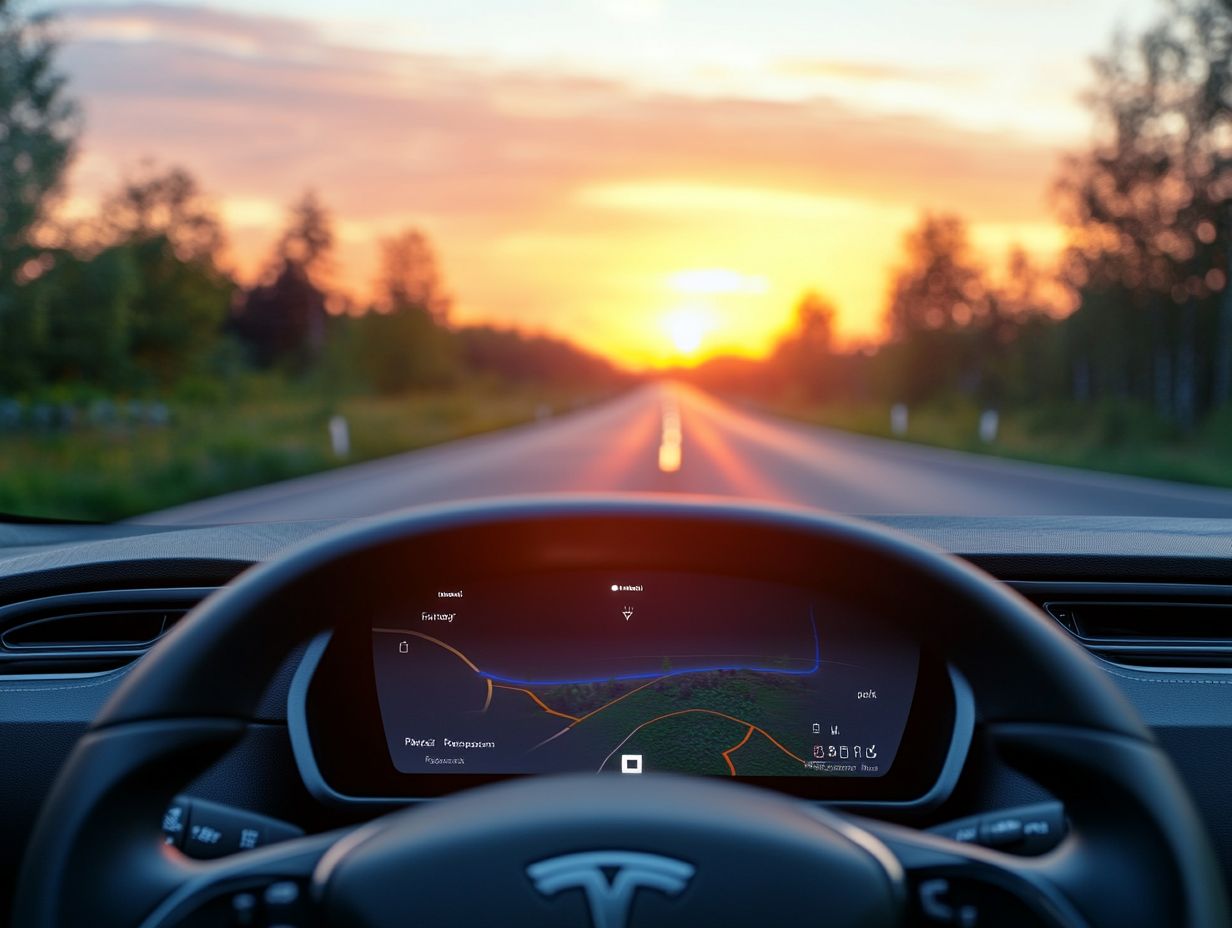
EV range estimates are essential because they give drivers an idea of how far they can travel on a single charge. This allows them to plan accordingly and avoid unexpected battery depletion on the road.
How accurate are EV range estimates?
EV range estimates can vary in accuracy based on factors like driving style, weather conditions, and terrain. However, they are usually more accurate than fuel economy estimates for traditional vehicles.
Can I trust the EV range estimate on my vehicle?
It’s generally safe to trust the EV range estimate on your vehicle, but keep in mind it is just an estimate and may not always be 100% accurate. Always have a backup plan in case you run out of charge on the road.
Why do EV range estimates change while driving?
EV range estimates can change while driving due to various factors like speed, temperature, and terrain. For example, driving at high speeds or in extreme temperatures can decrease the range, while driving at lower speeds or on flat terrain can increase it.
Can I Improve the Accuracy of Electric Vehicle (EV) Range Estimates?
Yes! You can improve the accuracy of EV range estimates. Drive at a consistent speed, limit climate control use, and keep your battery and tires well-maintained.
What Happens if I Run Out of Charge Before Reaching My Destination?
If you run out of charge, find a nearby charging station or call roadside assistance. Always keep an eye on your EV’s range and plan your trips to avoid getting stuck!

